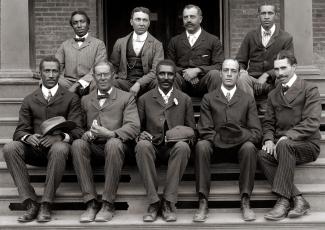
Our quest for education has always been a dangerous one. In the early 1800s, a precious few of us gained access to white universities - the only option at the time - but the vast majority of us did not. Either way, we went through Hell.
Outside the university, the KKK would lynch us and attack our families. Inside the university, professors would refuse to teach us and classmates would mistreat us. Abolitionists started some institutions for us, but more drastic action was needed.
After the Civil War, we still faced violent attacks from racists who refused to treat us as equals. Lynchings increased as we fought for our education. It was so bad the federal government had to step in.
The Second Morrill Act of 1890 forced Southern states to create public Black institutions of higher education if their white schools were going to keep discriminating against us. They did so, but our people still faced incredible challenges. The struggle was FAR from over.
It wasn’t until 1965 that the Higher Education Act FINALLY mandated decent funding for our institutions. Sadly, today we still fight against poor funding, abusive administrators who hop from HBCU to HBCU stealing money, and of course ever-present racism.
We must nurture and lead our institutions with an understanding of our history in order to protect our precious institutions for future generations.